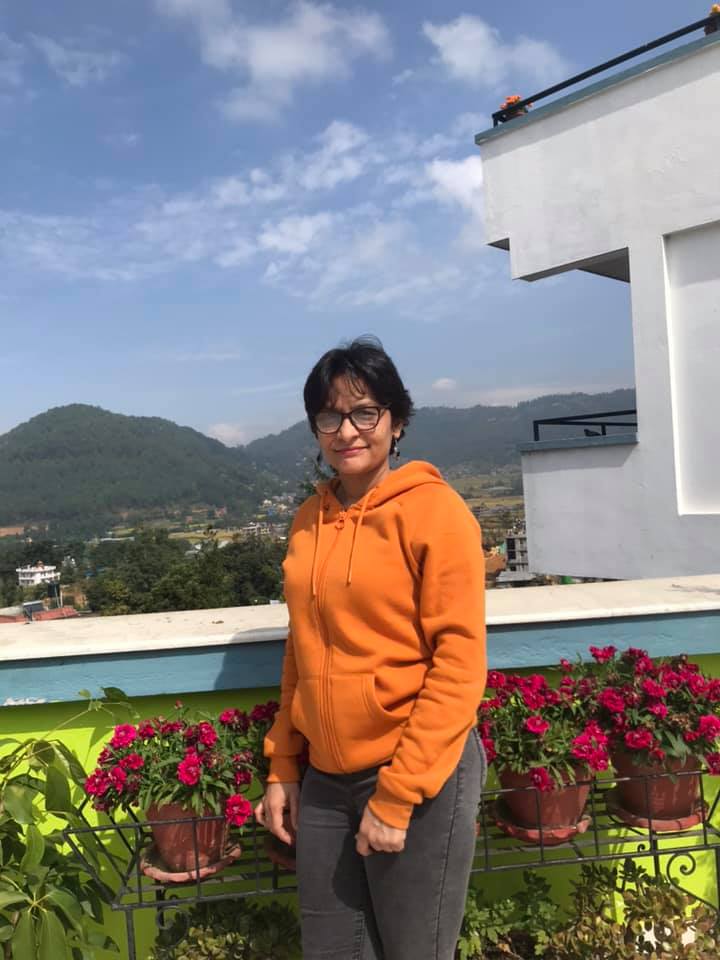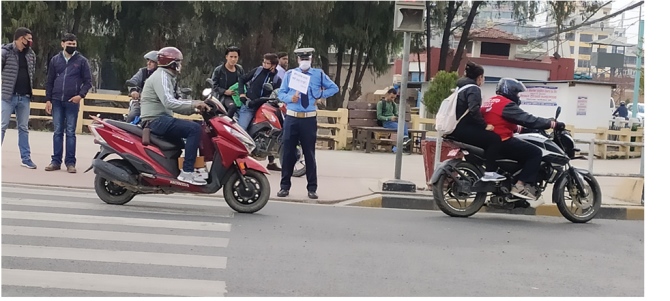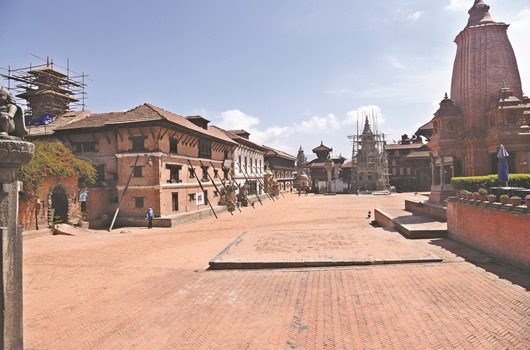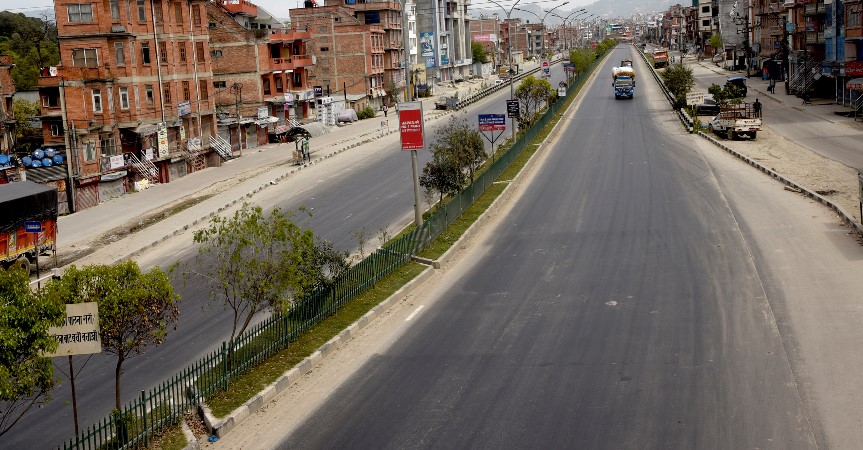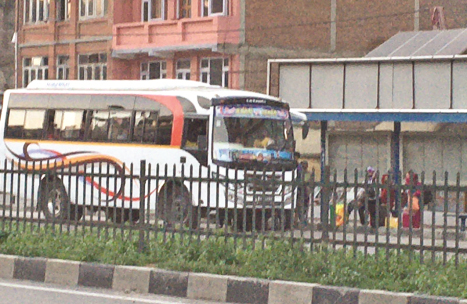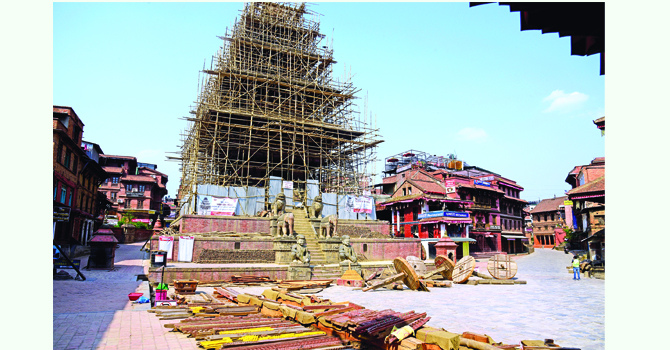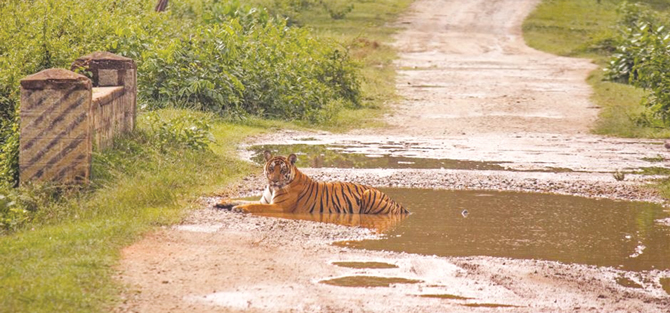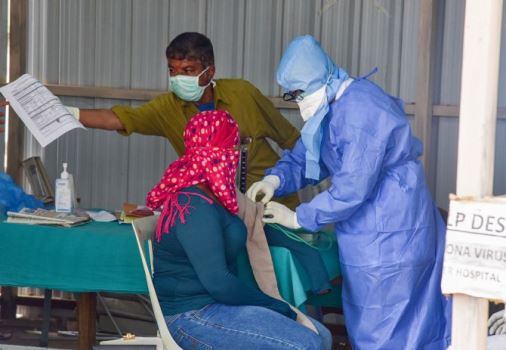President’s Women Upliftment Programme saving lives of rural women

By Indira Aryal
Kathmandu, Nov 1: Manisha Bista, 26, of Bitthadchir Gaunpalika-9 in Bajhang district was airlifted to Seti Regional Hospital in Dhangadi on Saturday morning after having complications during her normal delivery.
Physically disabled Bista has been rescued from the district within three hours after her family members informed the Chief District Office in Bajhang.
Bista delivered her baby through C-section in the same afternoon and her situation is stable, according to officials.
Yam Kumari Aangdambe, 38, of Miklangjung Gaunpalika, Panchthar, was airlifted to Biratnagar on Wednesday after experiencing complications during her delivery. She was rescued by an army helicopter and taken to Birat Nursing Home where medical professionals had to perform a cesarean section because she was unable to deliver her baby normally.
Similarly, on September 7, Menjom Tamang, 17, of Ruby Valley Gaunpalika, Dhading, was airlifted in an army helicopter to the Paropakar Maternity Hospital in Kathmandu. Tamang, who was 24 weeks pregnant at the time, developed sudden complications after one of the hands of her unborn baby came out.
Aangdambe and Tamang were rescued under the President’s Women Upliftment Programme (PWUP). The national-level programme, run under the Ministry of Women, Children and Senior Citizens, targets deprived women living in remote parts of the country who are unable to access quality medical care during childbirth.
The PWUP has proven to be a life-saver for rural women and its air ambulance service has won accolades from people of all walks of life, said Chief Focal Person Anju Dhungana.
“I recently got a phone call from President Bidya Devi Bhandari who had learnt of the programme’s success. It was a nerve-racking experience to get a direct call from the head of state but it means that we are doing well. We are always trying our best to rescue women living in the rural areas who need to walk for days to get to the best health facility,” Dhungana said.
Since 2018, the PWUP has rescued 153 pregnant and postpartum women, out of whom 67 were rescued during the lockdown period. A total of 40 women have been rescued this fiscal year, Dhungana said.
“Women should get the best treatment during pregnancy and the postpartum period and should be rescued as soon as possible,” said Arjun Kumar Sharma Guragain, Chief District Officer (CDO) of Panchthar.
It was Guragain who informed the PWUP about Aangdambe’s complications and he believed that it was a godsend for women in remote areas in need of accessing healthcare before and after child delivery. He said that he received requests from all over the district. “Gaunpalikas and municipalities send letters to CDOs, asking them to arrange for a helicopter. But sometimes, those letters arrive late. So immediate oral arrangements have to be made to quickly begin the rescue process,” he said.
The rescued women are taken to hospitals that operate the ‘Safe Motherhood’ scheme, namely Koshi Hospital in Biratnagar, Gajendra Narayan Singh Hospital in Rajbiraj, Janakpur Regional Hospital in Janakpur, Narayani Hospital in Birgunj, Paropakar Maternity Hospital in Kathmandu, Bharatpur Hospital in Bharatpur, Gandaki State Hospital in Pokhara, Lumbini State Hospital in Butwal, Bheri Regional Hospital in Nepalgunj, Karnali Academy of Health Sciences in Jumla, Karnali Regional Hospital in Surkhet and Seti Regional Hospital in Dhangadhi. There they receive free treatment along with a maternity allowance.
According to Dhungana, the programme currently does not cover some areas in remote districts. “But the ministry is working to include them as well,” she said.
The current COVID-19 pandemic has added an extra challenge to the rescue, as Dhungana said. People fear contracting the coronavirus while transporting the patients. “But the government is committed to the service and we have been achieving success till date,” she said.
Recent News

Do not make expressions casting dout on election: EC
14 Apr, 2022
CM Bhatta says may New Year 2079 BS inspire positive thinking
14 Apr, 2022
Three new cases, 44 recoveries in 24 hours
14 Apr, 2022
689 climbers of 84 teams so far acquire permits for climbing various peaks this spring season
14 Apr, 2022
How the rising cost of living crisis is impacting Nepal
14 Apr, 2022
US military confirms an interstellar meteor collided with Earth
14 Apr, 2022
Valneva Covid vaccine approved for use in UK
14 Apr, 2022
Chair Prachanda highlights need of unity among Maoist, Communist forces
14 Apr, 2022
Ranbir Kapoor and Alia Bhatt: Bollywood toasts star couple on wedding
14 Apr, 2022
President Bhandari confers decorations (Photo Feature)
14 Apr, 2022
